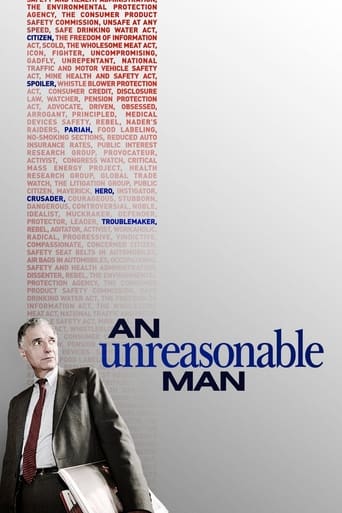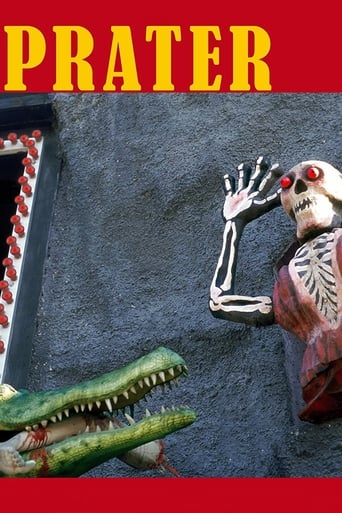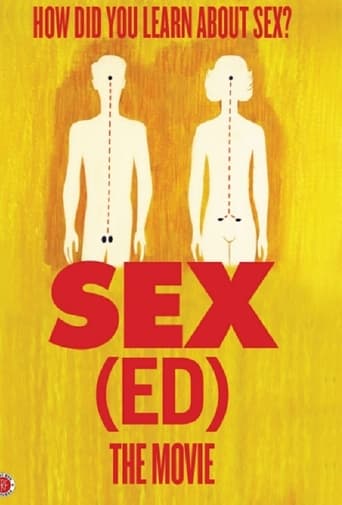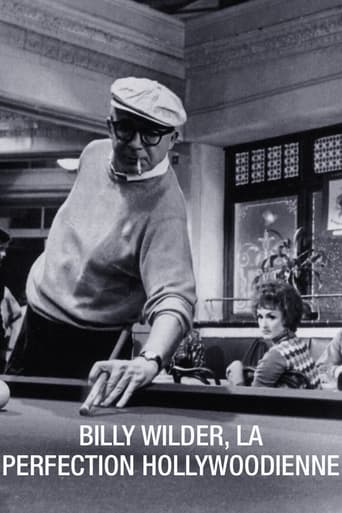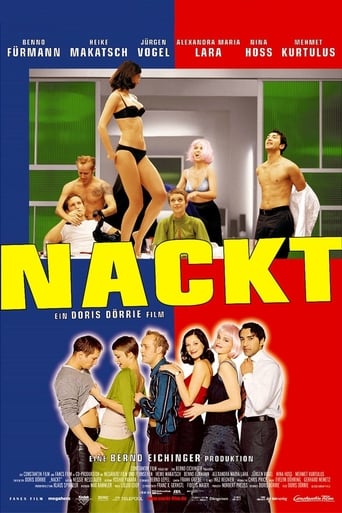An Unreasonable Man (2007)
An Unreasonable Man is a 2006 documentary film that traces the life and career of political activist Ralph Nader, the founder of modern consumer protection. The film examines Nader's advocacy for auto safety features, such as federally mandated seat belts and air bags, as well as his rise to national prominence following an invasion of privacy lawsuit against General Motors.
Watch Trailer
Free Trial Channels
Cast


Similar titles
Reviews
I like the storyline of this show,it attract me so much
Not even bad in a good way
A Disappointing Continuation
Strong acting helps the film overcome an uncertain premise and create characters that hold our attention absolutely.
'An Unreasonable Man' sure maybe to some or to the sum, however, to badly paraphrase the quote at the beginning of the film, it's going to have to be that way when going against vast popular opinion or a country set possibly in ill-fated contemporary or foregoing ways. The unreasonable man should always be present in time, sound and communal ways: that way we can check ourselves and make sure the emperor has good threads and of course reason, too. That is the way it is has be; or should be. However, I guess it's not that way; and so it goes, but this is not a political diatribe, spread it where they or I may. This documentary, is one of reasonably objective, standard and possible edifying fare; it brings on opponents of the whole 2000/2004 election elicitation, and brings forth the questions or accusations or presumption that Nader had ruined the election for the dems in both respective races. It is a thorough documentary with footage seemingly inclusive of converse thoughts and events, but obviously biased. Even opponents seem to admit not a dime's worth of difference between our two parties. Nader states "and so when people say, 'why'd you do this in 2000?', well I'd say I'm a twenty-year veteran of pursuing the folly of the least-worst between the two parties, 'cause when you do that, you end up allowing them to both get worse, every four years." Very well said. Furthermore, In a supposed free-market, like cheese or milk, let the voter decide. What did Nader owe Gore or Kerry? Let the voter, or the faux-voter, decide, again! Some party's inability to provide the right H'ors deurves might be to blame. Whom did he owe any votes?
I remember when I was working on my listening skills. I used to listen to the speeches of David Duke to see if I could get beyond his hateful rhetoric to find some gem that I could agree with. When I started to watch this doc, I could easily agree with James Carville that outside of Jerry Falwell, Ralph Nader was the worst man in America, or something to that effect. I would put James Dobson and Karl Rove on that list.But, all that changed as I examined the facts. Nader did not cost Gore the election. Even David McReynolds got more votes that the 534 that separated Gore and Bush. In fact, every one of the half dozen or so third party candidates in Florida got more than 534 votes. Gore cost Gore the election, Just as Kerry cost Kerry the election in 2004. Bush should not have won either, and if the Democrats had stood up for the people as Nader did, then they would have won both.We owe so many of the things we take for granted: airbags, seat belts, product labeling warnings on food, clean air; I could go one and on, to Ralph Nader. He is one of the greatest Americans that have ever lived.No. I would never vote for him, but after watching this doc, I will stop vilifying him.
This film explores this fundamental question about democracy; do you vote with your conscious and the future in mind (big picture), or do you vote for the change right now because things are so messed up? My view, and I think the view of the film, is if we vote to change the right now we will only continue the flawed system and it's preconditions that will ensure we never really solve the major problems....just temporarily fix them.What the story of Ralph Nader gives us is an example of how you can fight the system and win. How when you act on what you believe in and look at the world without discrimination you can affect great positive change.Everyone told Ralph he couldn't do this, he couldn't do that. Ralph looked them right in the eye and said F-off I'm doing it because it's the right thing do. And then he would either win the argument or have his predictions proved true.This is the most inspirational film I have watched thus far in my life. If you like justice and fairness, try An Unreasonable Man. You will feel sooooo empowered after watching it.**This comment has been made safer by Ralph Nader**
If any single individual can be said to have determined the outcome of an election, it would have to be Ralph Nader. And if any one person can be credited with saving thousands of lives through the actions he's performed and the stands he's taken, well that would be Ralph Nader too.After decades as the world's premiere consumer activist and all-around corporate gadfly, Nader should, in the sunset of his life, be basking in the glow of unalloyed adulation, a shiny symbol of hope and courage for the common man in this country. Instead, he finds himself a figure more reviled than revered by those who should love him most.The documentary "An Unreasonable Man" attempts to explore the reason for this mystifying love/hate dichotomy. Filmmakers Henriette Mantel and Steve Skrovan trace the path of Nader's life beginning with his childhood in Connecticut, where he was raised by his socially-conscious parents to champion fairness and the cause of the little guy, to his eventual career as the populist activist par excellence, taking on corporate behemoths in the name of consumer safety. The movie chronicles the run-ins with GM that turned Nader into not only a household name but clearly "one of the most admired men in America." We see him inspiring a band of college students - who came to be known as "Nader's Raders" - who successfully took on any number of corporate giants throughout the 1960's and 1970's, resulting in many of the consumer protection laws we take so much for granted today. He was clearly a pioneer in his field, and the movie is an inspiring tribute to the selflessness, determination and courage that helped this one man make such a difference in the world (the movie reminds us that before Nader even seatbelts were not standard items in automobiles).It's with the coming of the Reagan Revolution in the 1980's that Nader began to become severely disillusioned, as he watched the new conservative administration, hostile to the very principle of governmental protectionism, dismantle many of the programs Nader had dedicated his life to setting up. But his disillusionment did not extend merely to Republicans. For it was at this point that Nader began to claim that there wasn't a "dime's worth of difference" between the Republicans and Democrats, a realization that compelled him to finally run in 2000 as a Presidential candidate on the Green Party ticket. The rest, of course, is history, with many Democrats, some formerly close friends of Nader, choosing to blame their fallen idol for Gore's squeaker loss in Florida (and, consequently, the nation) on that fateful election night.Although "An Unreasonable Man" presents Nader in a generally flattering light, it does not shy away from the very genuine anger Nader's actions have aroused in many of his former followers. Many blame him for ensuring Bush's victory and, thus by extension, for eight years of what they would describe as appalling Republican leadership. Others take a more philosophical view, worrying more about how all this might taint the very impressive legacy Nader built up over many decades of tireless social activism. In true maverick style, Nader pooh-poohs this concern, claiming that fighting for people is what he truly cares about, not how he will be viewed by future generations. The movie provides many opportunities for Nader's faithful supporters to have their say, as well, so we get a fascinating debate about whether ideological purity or steely-eyed pragmatism should be the key factor in determining one's vote in a presidential election. One of the most interestingly ironic moments in the film comes when we see Michael Moore, who is usually the one doing the sandbagging in his own films, being sandbagged himself as he is shown flip-flopping on his support for Nader between the 2000 election where he spoke at Nader rallies and the 2004 election where he pleads with Nader not to run.Even people who are still embittered by Nader's role in the 2000 election may find themselves softening in their attitude towards him a bit after watching this film. The movie certainly reminds us of the great debt of gratitude we owe him as a nation, and, even when he is at his most obstinate in the political realm, we sense that he is being that way for ideologically honest reasons, not out of ego or malice. It's awfully hard not to find oneself cheering him on as he attempts to force his way into the audience for one of the 2000 presidential debates, after he and all the other independent candidates had been officially banned from the premises. "An Unreasonable Man" provides a generous helping of archival footage to go along with the passionate interviews on both sides of the Nader spectrum (the movie does not, however, provide any real conservative voices, except for Patrick Buchanan, who, on many issues is actually more aligned with Nader's positions than opposed to them).Love him or loathe him, this is a fantastically interesting and informative documentary about one of the most influential figures of the last hundred years.

